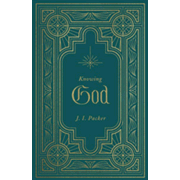
Imagine knowing everything about the past, the present, and the future all at the same time. That’s the core idea behind the concept of omniscience. In theological terms, omniscience refers to God’s ability to know everything that can be known. He knows everything about the past, understands the present, and can see the future. This isn’t just about public knowledge accessible to everyone; it stretches to thoughts, feelings, and potential outcomes that no one can see (Psalm 33:13–15; 139:1-4, 11–12; 147:5; Prov. 15:3; Isa. 40:14; 46:10; Acts 15:18; 1 John 3:20; Heb. 4:13).
Historically, the notion of an all-knowing deity has been pivotal across various religious traditions. Philosophers and theologians alike have long discussed the vastness of divine knowledge. For Christians, the scriptures offer an array of narratives and teachings that depict the depth of God’s awareness.
In Christianity, the Bible frequently highlights God’s omnipresence and omniscience, showing how He remains an integral part of believers’ lives. Understanding omniscience is more than an intellectual exercise; it’s about weaving that sense of infinite awareness into the fabric of our faith. The true significance of God’s all-knowing nature can often be found at the intersection of belief and awe. It’s a reminder that while we seek understanding, some aspects of God’s nature defy full human comprehension.
The Boundless Mind: How Omniscience Shapes Belief
The idea that God knows everything past, present, and future, is fundamental to our understanding of Him. The all-knowing nature of God doesn’t just influence theological concepts, but it actively shapes our beliefs and practices. From daily prayers to moral choices, the belief in an omniscient God guides actions and decisions, creating a roadmap for the faithful to follow.
In my opinion, one area where you can really see the impact of this belief in God’s omniscience is in how people approach free will and predestination. Some wonder, if God already knows what’s going to happen, what room is there for free will? Different traditions offer various answers to this puzzle, shaping their own unique narratives around God’s comprehensive foresight.
Navigating the terrain between divine omniscience and human experience isn’t easy. Believers often find themselves wondering how God’s all-seeing presence meshes with day-to-day reality, where uncertainty and the unknown are common. For example, in the positive sense, the all-knowing nature of God brings me comfort when I face difficulties in life. Those circumstances do not catch him off guard. If he knew something was going to happen, there was a plan and purpose for it. In the less positive sense, God knows everything I have done and will do. Nothing is a secret to him. That can be scary because we often evaluate how God loves us based on our standards instead of his.
Wrapping our minds around this is difficult, but I’m here to shine a light on how we can make some sense of this, and it’s going to include a look at how such beliefs impact our understanding of events, tragedies, and personal destiny.
Philosophical Discourse: Debating God’s Omniscience
When we talk about God’s all-knowing nature, it isn’t just a religious conversation; it’s a centerpiece of intense philosophical debate. Philosophers both ancient and modern have tossed around the big questions: Can an omniscient being exist? What does it mean to know everything, and how does this impact our understanding of free will and choice?
Let’s take a look at some key arguments that have shaped the discourse. One prominent argument suggests that if God is all-knowing and knows the future, then the future must be predetermined. This perspective challenges the notion of free will, because if our choices are known in advance, can we truly make a different choice?
On the other side of the coin, some thinkers argue in defense of omniscience. They suggest that God’s foreknowledge doesn’t necessarily require predestination. The reasoning here is that knowing something will happen isn’t the same as causing it to happen. It’s a subtle but important distinction that has fueled endless discussions.
Contemporary philosophers are also engaging with the limits of knowledge. They examine questions like: If God is all-knowing, does this include knowing all the laws of logic? Are there things that even an omniscient being cannot know, simply because they are unknowable?
To illustrate these complex ideas, many philosophers use thought experiments. Take the ‘Omniscient Reader Paradox’. It proposes a scenario where an author writes a story known only to them and an omniscient reader. The story changes based on the reader’s thoughts. But if the reader is truly omniscient, they already know the story, so can it ever be unexpected or change? These types of brain teasers help us delve into the nuanced facets of omniscience.
Does your brain hurt yet? Don’t worry. You’re not alone.
Embracing the Mystery: Living with Divine Omniscience
Now, I’ve taken you through the winding paths of theology and philosophy, exploring how omniscience intertwines with our understanding of God. You’re going to find out that embracing the concept of God’s infinite knowledge isn’t just an intellectual pursuit. It impacts our moral compass and how we navigate life’s complexities.
When you consider the idea that a supreme being knows every outcome, and every possibility, it’s natural to feel a mix of awe and uncertainty. That’s the space where faith thrives – in the recognition of our limitations and the surrender to a greater plan. For many, it offers a sense of peace, knowing that there’s an ultimate wisdom guiding the universe.
This understanding doesn’t diminish our responsibility to make ethical choices or pursue knowledge. Instead, it shines a light on the extraordinary importance of each decision we make, as we play our part in a tapestry that’s wider and richer than we can comprehend.
Over the years, I have found God’s omniscience to be both a bit frightening and comforting. It is a bit frightening to think that God knows everything I have done and will do. When we realize this, we tend to think about how God will judge us based on our actions. But understanding the omniscience of God through the lens of Jesus Christ provides comfort. God knew I would reject him. He knew I would try to live my way and violate his commandments. He knew this yet sent his Son to pay the penalty of my sins, taking my guilt and offering grace, mercy, and forgiveness. Now I see the omniscience of God as comforting because he knows every situation I will face. Because that is so, I know there is a solution to the current challenges I face and any future challenges I may face.
Where does that leave us? With a call to live authentically, to act with the awareness that our lives are seen by an all-knowing deity. This includes fostering humility, exercising compassion, and seeking understanding within our communities and beyond. It calls us to recognize God’s ability to govern our affairs properly and allow him the right to lead us according to his design.
Understanding the omniscience of God is all part of getting to know God. If you would like to dive into the subject further, I recommend Knowing God by J.I. Packer. His insights offer a practical approach to understanding God. You can find a link to purchase a copy below.
 |
Knowing God, Hardcover By J.I. Packer / Crossway |

